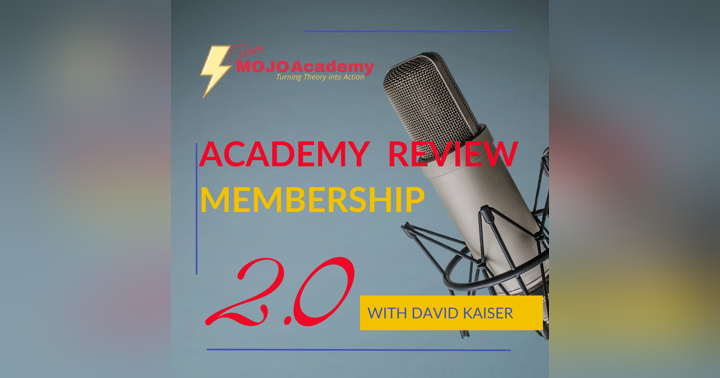Top Books I Read in 2024 (And Why You’ll Love Them Too)

The Top Books I Read in 2024 (and Why You Should Add Them to Your List)
Is there anything more enriching than a year spent with a great book in hand—or in my case, often, in my ears? Reading is more than just a pastime; it’s a gateway to growth, knowledge, and self-discovery. Each page brings new perspectives, and each title helps lay a foundation for flourishing in both personal and professional realms.
This year, I upped my reading game, finishing 30 books—just edging out the 28 I read in 2023. With work travel being a constant for me, audiobooks long have become my saving grace, turning long road trips into windows of learning and reflection. Among the books that resonated deeply, I’ve selected these 10 standouts that made a lasting impact for their insights, revelations, and lessons. These titles cover topics ranging from history and economics to leadership and values. Let's roll
Top 10 Non-Fiction Books of 2024
(no particular order)
1. 11 Principles of a Reagan Conservative by Paul Kengor
This insightful exploration of Ronald Reagan’s conservative philosophy breaks down his guiding principles, such as individual liberty, free markets, and faith. Paul Kengor presents a compelling exploration of how steadfast values can define a leader's legacy, offering a clear distinction between what it means to be a true Reagan conservative and what falls outside that vision.
Key takeaway: True leadership stems from steadfast principles, particularly in times of societal change. Reagan exhibited those principles at the highest level.
2. A Pope and a President by Paul Kengor
Another masterpiece by Kengor, this book dives into the profound relationship between Pope John Paul II and President Ronald Reagan, showcasing how their shared vision helped end the Cold War.
Key takeaway: Faith and diplomacy can work hand in driving global transformation, particularly in the peaceful dismantling of Eastern European communism—one of the most remarkable and nonviolent revolutions in human history.
3. Deception by Rand Paul
Senator Rand Paul’s Deception is a hard-hitting examination of political dishonesty and its consequences. This book urges readers to question information sources critically and hold leaders accountable.
Key takeaway: Awareness and vigilance are critical in navigating a world where truth is often obscured. If you're frustrated with the dishonesty and lying of figures like Dr. Fauci, Dr. Birx, and others in the medical establishment, you'll appreciate Senator Paul's efforts to hold them accountable and expose the truth. May we find some accountability in 2025 for these characters.
4. Lincoln’s Greatest Journey by Noah Andre Trudeau
This beautifully detailed account focuses on a lesser-known chapter of Abraham Lincoln’s life—his 16-day trip to meet Ulysses S. Grant during the Civil War. Trudeau captures Lincoln’s humanity, determination, and ability to lead a divided nation.
Key takeaway: Even amidst adversity, simple acts of connection and resolve can change the course of history. Can you imagine the President of the United States in early 1865, personally touring the rebel capital of Richmond? This part of the book had me on the edge of my seat despite knowing the outcome.
5. Principles for a Changing World Order by Ray Dalio
Ray Dalio offers a comprehensive analysis of global trends and the shifting dynamics of power among nations. Packed with graphics and data insights, this book is a must-read for understanding the future and for geopolitics.
Key takeaway: Understanding historical patterns can help us prepare for and thrive amid change. While I don’t fully agree with all of Dalio's conclusions, I greatly admire his presentation. Could we see more of this, please?
6. The Mystery of Capital by Hernando de Soto
De Soto’s book tackles a pressing question: why does capitalism thrive in some areas of the world but struggle in others? The answer lies in the hidden infrastructure of property rights and formal systems.
Key takeaway: Free market capitalism and Inclusive economic systems are the key and bedrock foundations to unlocking prosperity on a global scale. This modern classic is a must-read for college students, offering a compelling counterbalance to the Marxist ideologies prevalent in many U.S. universities. I just loved this book!
7. Taxes Have Consequences by Arthur B. Laffer, Brian Domitrovic, and Jeanne Cairns Sinquefield
If you think taxes are boring, this book will change your mind. The authors make a compelling case for how taxation policies have shaped economies and societies throughout history.
Key takeaway: Supply side tax reforms can spur innovation, investment, and economic freedom and this is the sauce behind why they work. Overlay the history of the 1920s, 1960s, and 1980s alongside this book, and you'll uncover compelling evidence while gaining a much deeper understanding of this "magic sauce." For me, this was the cherry on top for providing Supply Side economics works every time.
8. The Age of Reagan (vol 1) The Fall of the Old Liberal Order 1964-1980 by Steven F. Hayward
Hayward’s definitive biography of Reagan covers the pivotal events and decisions that defined his presidency. It’s a reminder of how Reagan’s policies and optimism left an enduring legacy.
Key takeaway: A clear and optimistic vision has the power to unite and inspire a nation, even during its most difficult moments. To truly understand the two decades leading up to the Reagan Revolution is to grasp why Ronald Reagan is often regarded as one of the greatest presidents in American history.
9. The Big Guy by Miranda Devine
Miranda Devine presents an investigative look into political nepotism and corruption, particularly focusing on the Biden family. It’s a bold and often jaw-dropping read.
Key takeaway: Transparency and accountability are more critical than ever in politics. This will be a significant factor in why Joe Biden may be remembered as one of the worst presidents in U.S. history—and that is no exaggeration.
10. The Fiery Trial: Abraham Lincoln and American Slavery by Eric Foner
Eric Foner provides a groundbreaking analysis of Abraham Lincoln’s evolving views on slavery and how they shaped his presidency and the nation’s history. Through meticulous research and insight, this book illuminates the complexities of Lincoln’s character and the political pressures he faced during one of America’s most challenging eras.
Key takeaway: Leadership requires the ability to adapt and grow, especially when navigating moral and political dilemmas. This book is an essential read for understanding Lincoln not as a mythic figure, but as a principled yet pragmatic leader responding to the tumultuous environment of his time.
How These Books Shaped My Year
Each of these books provided something unique—whether it was deep historical insights, economic clarity, or a spark of inspiration. They didn’t just inform me; they transformed how I approach challenges and opportunities in my professional and personal life.
For instance, Dalio’s Principles for a Changing World Order completely shifted how I view global trends and geopolitics especially the US dollar reserve currency status. It’s now a reference tool I go back to any time I’m contemplating macro-level geo-political dynamics. Similarly, The Mystery of Capital and Taxes Have Consequences sharpened my understanding of economic growth and continues to influence how I think and believe that free economic capitalism is the bedrock of world prosperity.
On a personal note, books like 11 Principles of a Reagan Conservative have been a powerful reminder of the value of leading with principles and optimism—qualities I aim to embody every day. Similarly, A Pope and a President reinforced the extraordinary impact that can be achieved when two visionary leaders unite with shared goals and a common purpose.
Audiobooks again were the foundational productivity habit for me this year. They turned otherwise “lost” time during travel into opportunities to learn. If you're juggling a busy schedule, I highly recommend integrating audiobooks into your routine. With platforms like Audible, the entire library of knowledge is always within reach. Not to mention, they offer many titled for free as added bonuses to increase the building of your library. My personal library is now up to an astonishing 1565 titles.
What Books Defined Your Year?
Reading has the power to illuminate, inspire, and influence. While I’ve shared the books that left a mark on me in 2024, I know this is just the tip of the iceberg. There are countless other titles out there waiting to be discovered.
What were your top books this year? I’d love to hear your recommendations. Drop them in the comments—or better yet, share why they mattered to you.
Not sure where to start building your own reading list? Subscribe to my blog for regular book recommendations and insights. Together, we can continue exploring the world through the written word.






